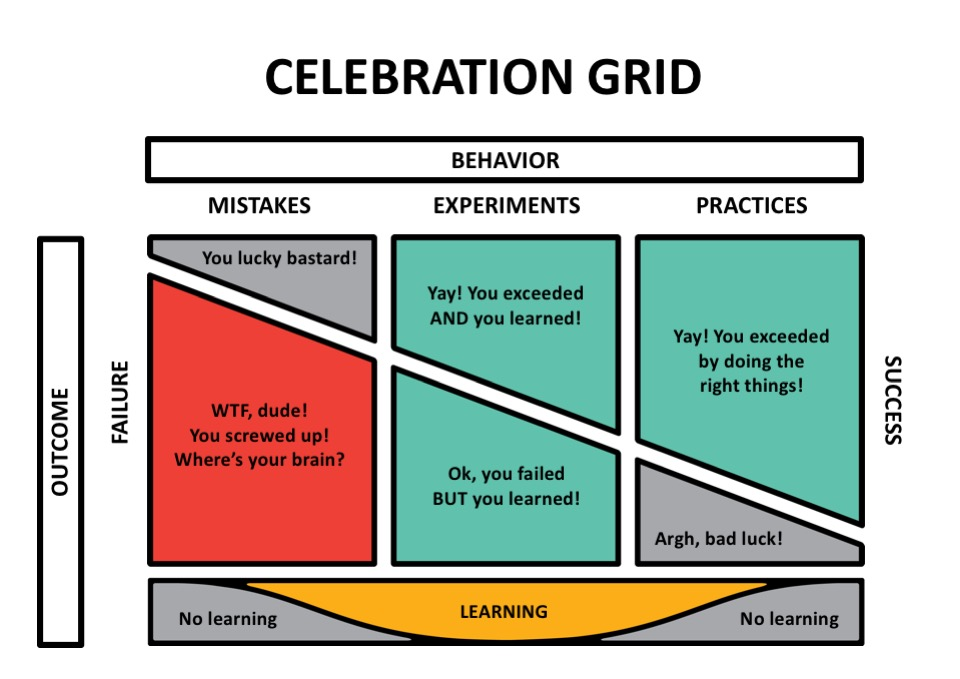Healthy Feedback Culture
I’ve recently joined a UK-based company, and one of the things that quickly struck me was their praise culture. Maybe it’s not fair to categorize this behavior as British, but some British people certainly have a way of praising mediocre efforts. I understand praising good work, and I understand encouraging young people to keep going, but I keep thinking there must be a better way to say: “You did a good job at something very basic, let’s try something more challenging next time.”

Providing Personal Feedback
Again with the Abrahamic stuff, this time I managed to track down the source of the quote:
Quote
Praise no man before thou hearest him speak; for this is the trial of men.
― Ecclesiasticus 27:7
I think there’s truth to that. I would append it with: Do praise someone you have witnessed do good work. Good work that goes without recognition is also not good. I’m also not a fan of the adage: ‘praise in public criticize in private’, I think this may be good for families/communities, but professional praises should be directed at the person’s manager or their review cycle form, not at a public forum.
Two recent personal anecdotes that come to mind.
There are these bulletins in a community near where I live, the writing is really great; I sometimes keep some of my favorite leaflets. Recently I found out it’s a local woman who writes them, and I praised her for it. She was very surprised. She said I was the third person to mention it in over 17 years.
A more professional-related one: last year I finished a project for an important client, and as usual I wrote feedback pieces to my peers. I sent the good stuff to their line managers and the more constructive stuff directly to them. Their manager was so thrilled to hear in details about the work their team was doing, that they returned the favor and somehow three other people higher up the hierarchy followed them and did the same. This feedback “echo” proved very beneficial for me and the team.
I came up with a cheeky Sith mantra, the kind you would find in a Holocron, to summarize this idea:
With a clear mind, I hear them
From listening, I understand
From thought, I work
From repetition, I learn
From experience, I speak
From truth, we progress.
So make sure not to let great work go to waste. A professional collaboration can bear fruit long after it’s concluded. And this is a perfect segue to the next thing I wanted to discuss.
Celebration Grids
One way to transform your project into a gift that keeps on giving is to make sure you learn from your actions. A great way to do this is with a great end-of-project retro, and I found just the right tool for it, the Celebration Grids.

The idea here is to categorize the things you tried throughout a project into things you knew were wrong (Mistakes), new things you tried (Experiments), and things you knew were right (Practices). The diagonal line (success line) divides things that worked (above) or failed (below) and the area of the boxes corresponds to the probability of that happening. The learning distribution symbolizes the fact that learning happens mostly when we try new things, not when we fail. The green colors represent things that we should celebrate, and red represents those we should avoid.
I find that running this exercise it a great, blameless way for the team clearly to identify good and bad behaviors themselves. Summarizing your findings and making them available to the team allows them to have a “live manual” of good practices.
Negative Feedback
As I grew more senior, I found that feedback became less personal and more output-related. Do the things you produce match expectations X, Y and Z. A lot of bad behaviors end up being reflected in the output, and since we work iteratively, output comes early and constantly. This is why I choose carefully how to write negative things. Avoid writing directly to the person, and also avoid writing to a big group. Rather, write to the team responsible for the product; good teams have a way of self-organizing and stepping up to improve their products. I’ve discussed this in a previous post: broadcast achievements, and channel problems.
The secret recipe is taking time to understand exactly how a solution doesn’t meet its expectations. If you know the right way to do it, suggesting it is a constructive way to help. Write it with the utmost respect, and never assign blame. Always write from a place of someone who cares about the organization, and genuinely wants things to improve.
Team Praise - A Manager’s Duty
Unlike personal praise, team praise needs to happen in a public forum. Organizations often need to cut costs, and teams that don’t produce visible output get cut, that’s the sad reality. Creating visibility and articulating the importance of a team’s work is a manager’s responsibility. One of their main ones, if I may say so.
A manager should take time to understand how a team’s output affects the org and world. That also needs to be articulated within the team, so they’re aware and have something to motivate them. Even if you’re making sure individuals are rewarded for their hard work, giving a team visibility for their deliveries ensures their long-term success.